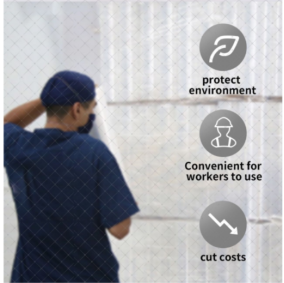Eco-Friendly Paper Packaging Supplies for Sustainable Shipping
The Importance of Paper Packaging Supplies in Sustainable Business Practices
In today’s fast-paced consumer landscape, businesses are continually seeking ways to enhance their environmental responsibility while meeting customer demands. One significant trend gaining momentum is the use of paper packaging supplies, which play a crucial role in promoting sustainability. The importance of adopting paper packaging cannot be overstated, as it offers various advantages that align with modern eco-friendly practices.
Firstly, paper packaging is renewable and biodegradable, making it an environmentally friendly alternative to conventional plastic materials. While plastics contribute significantly to pollution and waste, paper is derived from natural resources such as trees, which can be replanted and replenished. This renewable aspect not only minimizes the carbon footprint associated with packaging but also allows businesses to position themselves as responsible players in the global market. Consumers are increasingly aware of the impact of their choices, and opting for brands that use paper packaging can enhance a company's reputation and build consumer loyalty.
Moreover, the ease of recycling paper packaging further underscores its sustainability. Unlike some plastics that are difficult to recycle and often end up in landfills, paper can be efficiently repurposed, reducing waste and conserving resources. Many regions have established robust recycling programs that encourage consumers to participate in reducing waste. By integrating recyclable paper packaging into their operations, companies can support these initiatives and contribute positively to the environment.
paper packaging supplies

Economically, paper packaging supplies are becoming more cost-effective as technology advances. As the demand for sustainable solutions grows, manufacturers are exploring innovative methods to produce high-quality paper products at lower prices. This evolution means that businesses can invest in eco-friendly packaging without straining their budgets. Additionally, using paper packaging often eliminates the need for additional protective materials, thereby reducing overall packaging costs.
Another compelling aspect of paper packaging is its versatility. Businesses can choose from a variety of paper types and formats, including kraft paper, cardboard boxes, and recycled paper goods, to cater to their specific packaging needs. This adaptability allows brands to maintain their identity while adhering to sustainable practices. Customization options also exist, enabling businesses to create attractive packaging that resonates with consumers, enhancing brand recognition.
Furthermore, the shift towards paper packaging aligns with regulatory changes and consumer preferences toward sustainability. Governments worldwide are implementing stricter regulations on single-use plastics, prompting businesses to seek alternative solutions. By adopting paper packaging supplies, companies can not only comply with these regulations but also demonstrate their commitment to environmental stewardship.
In conclusion, the use of paper packaging supplies is a crucial element of modern sustainable business practices. By embracing paper as a primary packaging material, companies can reduce their environmental impact, lower costs, and appeal to eco-conscious consumers. The transition to paper packaging is not merely a trend; it's a vital step towards fostering a more sustainable future in business. As more organizations recognize these benefits, the movement towards paper packaging will undoubtedly gain further traction, paving the way for a greener planet.
-
Self Seal Bags: Secure, Clear, and Customizable Packaging for Every IndustryNewsAug.15,2025
-
Paper Cups: Bulk Solutions for Events, Cafés, and Eco-Friendly ServiceNewsAug.15,2025
-
Laminated Bags: Durable, Customizable Packaging for High-Impact BrandsNewsAug.15,2025
-
Grocery Bags: Smart, Sustainable, and Scalable Solutions for RetailersNewsAug.15,2025
-
Drawstring Bags: Versatile, Customizable, and Cost-Effective for Bulk UseNewsAug.15,2025
-
Disposable Gloves: Wholesale Solutions for Safety, Hygiene, and EfficiencyNewsAug.15,2025
-
Have the freedom of customizing your custom mailers any way you want! Our dedicated packaging support will help deliver you the mailing experience you need to elevate your shipping experience to the next level! Start making a strong impression on your customers and stand out from your competitors! -
LIYA uses high quality raw materials which directly purchased from large enterprises domestic and overseas such as PetroChina, Sinopec, Sabic, Equate, ExxonMobil, Dow Chemical, Total, and Borouge, ensuring the price advantage and quality of the raw materials. -
LIYA uses high quality raw materials which directly purchased from large enterprises domestic and overseas such as PetroChina, Sinopec, Sabic, Equate, ExxonMobil, Dow Chemical, Total, and Borouge, ensuring the price advantage and quality of the raw materials.





